Do you love grilled meat? If yes, do you prefer grilled pork or beef? But have you tried grilled sheep meat? Have you ever heard of Jingisukan?
Jingisukan is certainly a sought-after local food in Hokkaido. It is a hot pot dish but the cooking method is different. It is somewhat comparable to Sukiyaki but definitely not the same. If you’re still reading, it means that you’re interested. Continue reading to know more about Jingisukan.
Origin of Jingisukan
Many historians believe that the influence of this sheep meat dish is Beijing’s traditional of roasting lamb. It is not a coincidence that the name is similar to “Genghis Khan”. Genghis Khan is the first “Great Khan” of the Mongol Empire. Some people say that he traveled in Japan and China frequently. This is why the combination of ingredient and cooking method from the two countries is evident in this dish.
However, there are still other theories about the history of Jingisukan. A popular one is when the Japanese government launches a plan to be self-sufficient in wool production. Military uniforms need wool but importing goods during the war era has stopped.
The Japanese government thinks of a way to supply their troops with enough materials for the uniform. Raising sheep is the first step in this plan. As a matter of fact, the sheep farm is in Tsukisamu, Sapporo. In addition to this, they also want to fully-maximize the sheep. Thus, the use of sheep meat in local cuisine starts to become popular.
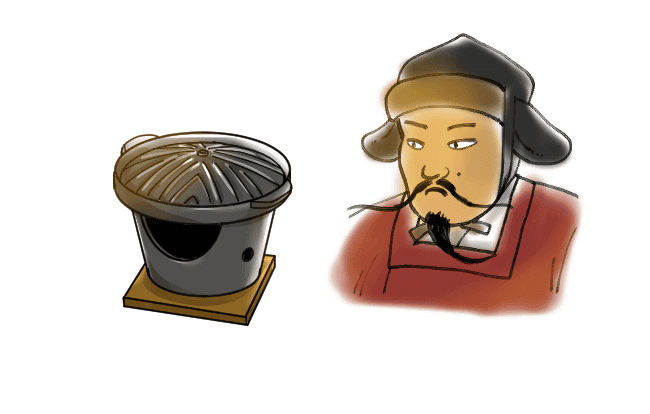
Derivation of The Name
The theory published back in 1969 is by Ryoichi Hiyoshi. According to “L’art Culinaire Moderne”, the name “Jingisukan” actually comes from Tokuzo Komai. Tokuzo Komai is the director of the research department of South Manchuria Railway Co., Ltd.
In 1963, Tokuzo Komai’s daughter publishes an essay called “Father and Genghis Khan Nabe” (父とジンギスカン鍋」が). Thus, she calls her father the “godfather of Jingisukan” in this essay.
Controversy Surrounding Jingisukan’s Name
For some Mongolians, the name of the dish disgusts them. Many of them look up to Genghis Khan as a great hero. He is the connecting force that united the nomadic tribes of Northeast Asia. Genghis Khan is also successful in conquering other parts of Asia.
In comparison to Japan, Genghis Khan is the equivalent of the emperor. People love and admire him. Hence, calling a dish the same name is disrespectful for some.
However, many have already explained the origin of the name. To date, “Jingisukan” is still the household name of the dish.
Production of Sheep Meat for Jingisukan
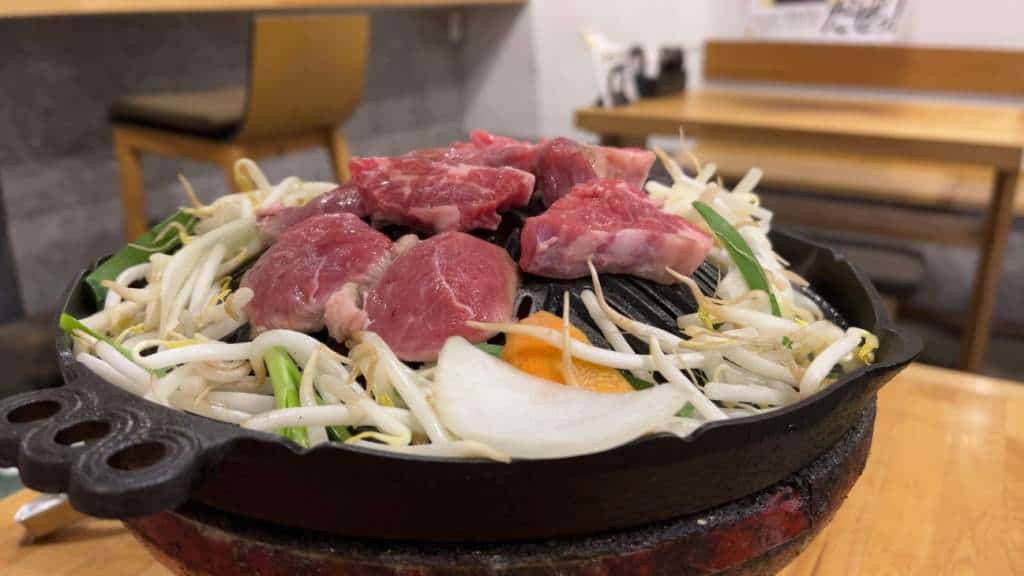
In 1924, Hokkaido has become the biggest breeding ground of sheep. In fact, about forty percent (40%) of the sheep production is in the prefecture. As mentioned earlier, high production of sheep is a mandate from the government. While the country has become self-sufficient in wool production, a new problem arises.
Eventually, there are more than enough supply of wool. Breeders now need to find a way to dispose all the extra mutton. Japanese people eat mutton on a regular basis. That being so, the Ministry of Agriculture and Commerce thinks of a way to help them. The agency conducts a research at Tokyo Women’s Higher Normal School. Hence, sheep meeting parties have been launched.
At the same time, more associations have released guides on how to prepare Jingisukan.
What Makes a Jingisukan?
Basically, Jingisukan is meat and vegetables cooked in an iron plate dish. Although the cooking method is grilling, Jingisukan is still a hot pot dish. So, what really makes Jingisukan?
Mutton (sheep meat)
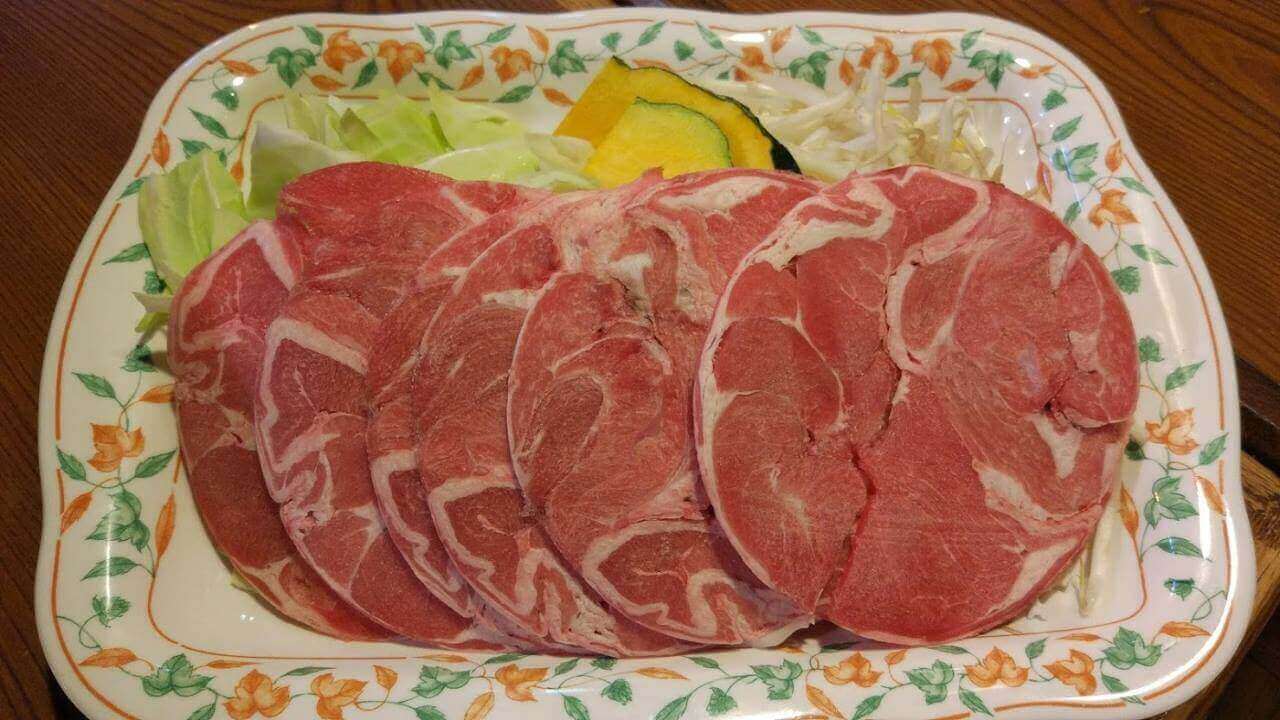
Mutton is obviously the main star of Jingisukan. Did you know that mutton and lamb meat are different? Yes, it is. Lamb meat comes from a young sheep that is around four months to one year old. Meanwhile, mutton comes from a fully-grown sheep. Usually, the sheep’s age is around one year and ideally at three years old.
Mutton contains a substantial amount of fat. The flavor is also quite strong in comparison to beef. The meat in Jingisukan is in thin and cylindrical form. There are actually two types of mutton you can use for this traditional food.
First is the unseasoned mutton. This is the more common one that even local supermarkets are selling it. A special sauce goes well with unseasoned mutton.
Seasoned mutton comes next. There are different kinds of marinade use to season the meat. It doesn’t require a sauce to eat since it has already been pre-seasoned. But a little more sauce will not hurt, right?
Vegetables
A lot of variations have been created as to what vegetables are great with Jingisukan. The usual vegetables that locals put together are bean sprouts, cabbage, leeks, bell pepper, onions, pumpkin, and carrots.
Just put all the vegetables in the convex-shaped iron grill and stir-fry it. The flavors and aroma of the vegetables enhances the overall taste of the dish.
Special Sauce
Seasoned or not, dipping the meat in a special sauce is such a winning moment! You just have to add that extra flavor to the meat.
There is no standard recipe for Jingisukan sauce. Sake and soy sauce are the condiments that taste good when combined. From there, you can add other seasonings and ingredients of your choice.
If you also want to season your raw mutton, you can use the same recipe for the marinade.
Skillet
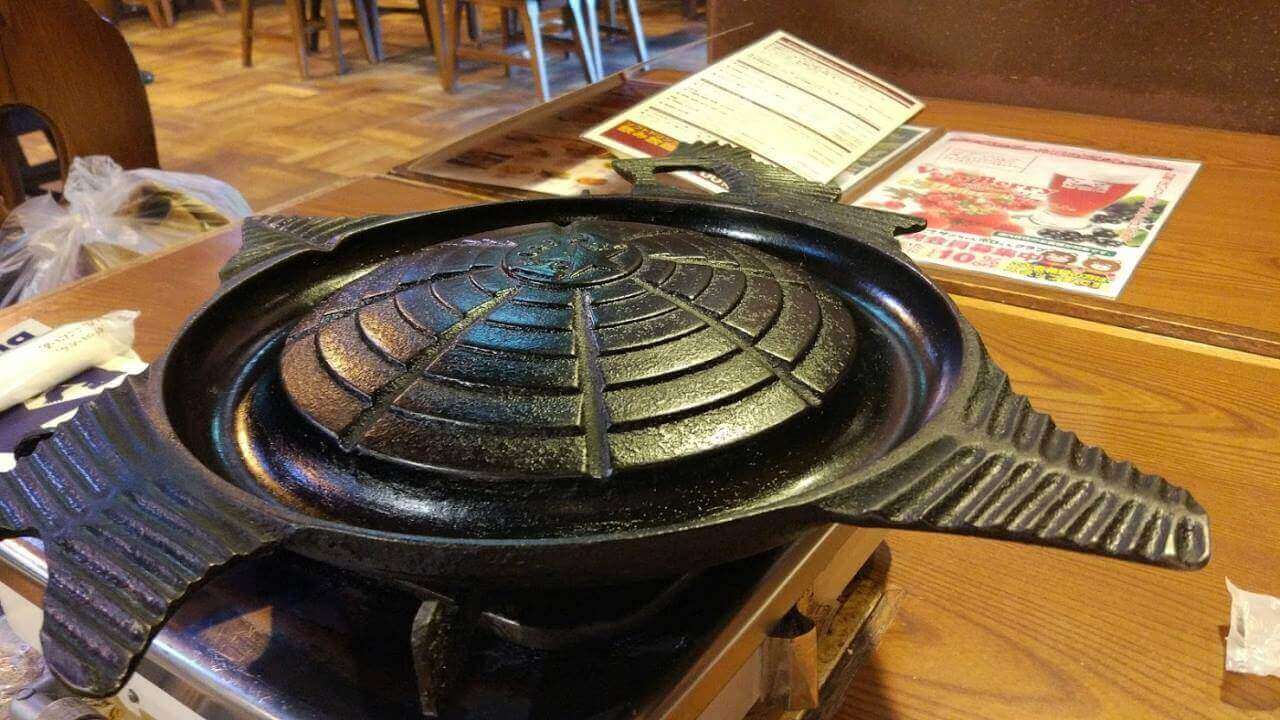
What makes Jingisukan different? It’s the skillet. The convex-shaped iron plate dish takes after the theory way thousands of years ago. They say that Mongolian soldiers used their helmets to cook the mutton during the war era.
Manufacturers either use iron or aluminum. Iron grill pans may have holes or not. These holes are for the excess fats of the mutton. Meanwhile, the aluminum ones don’t have holes. The reason is that aluminum pans are easier to burn. In addition to that, can be a pain in the head to wash after eating Jingisukan.
Restaurants that Serve Jingisukan
Jingisukan is such a household dish in Hokkaido that there are tons of restaurants serving the delectable hot pot dish. The list below are just a few of the recommended restaurants around the area.
Tsukisappu Jingisukan Club
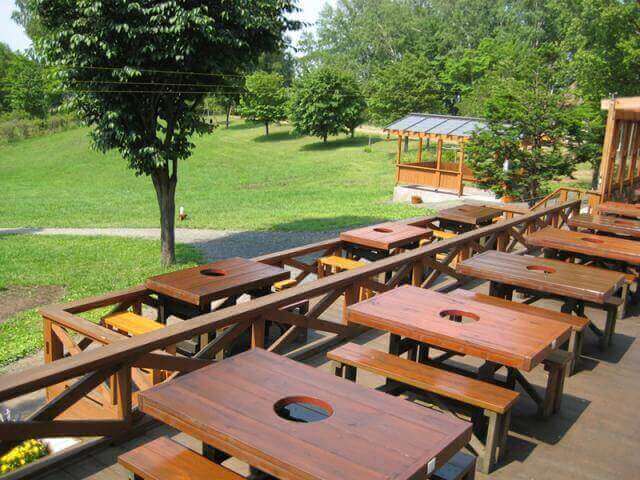
Tsukisappu Jingisukan Club has been standing for more than sixty years (60 years) now. The founder of the club is Motojiro Kuribayashi who initially named it “Naruyoshi Shisui Club”. Later on, the current name of the club replaced the old one.
The entire club is a breath of fresh air. You can enjoy the beauty of nature all-year round. The dining areas boast a scenic view of the trees and grasses outside. Coming to Tsukisappu Jingisukan Club is like coming to a farm house to devour Jingisukan.
Hige No Ushi Main Store
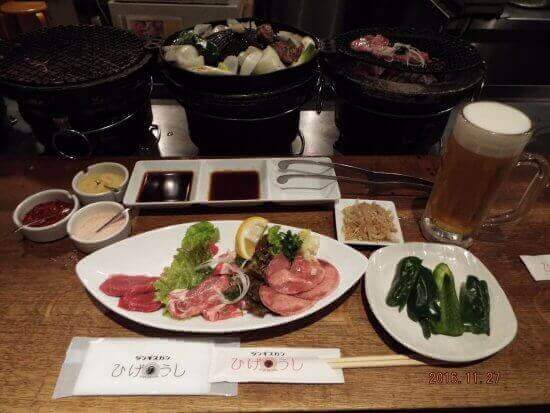
This restaurant is always full so it’s better to make a reservation in advance. Hige No Ushi believes in preserving the traditional taste of Jingisukan. This is a blockbuster place not just with locals but also with travelers. They also have lockers at the entrance of store wherein you can put your jacket. This way, it will not smell like smoke.
Sapporo Beer Garden
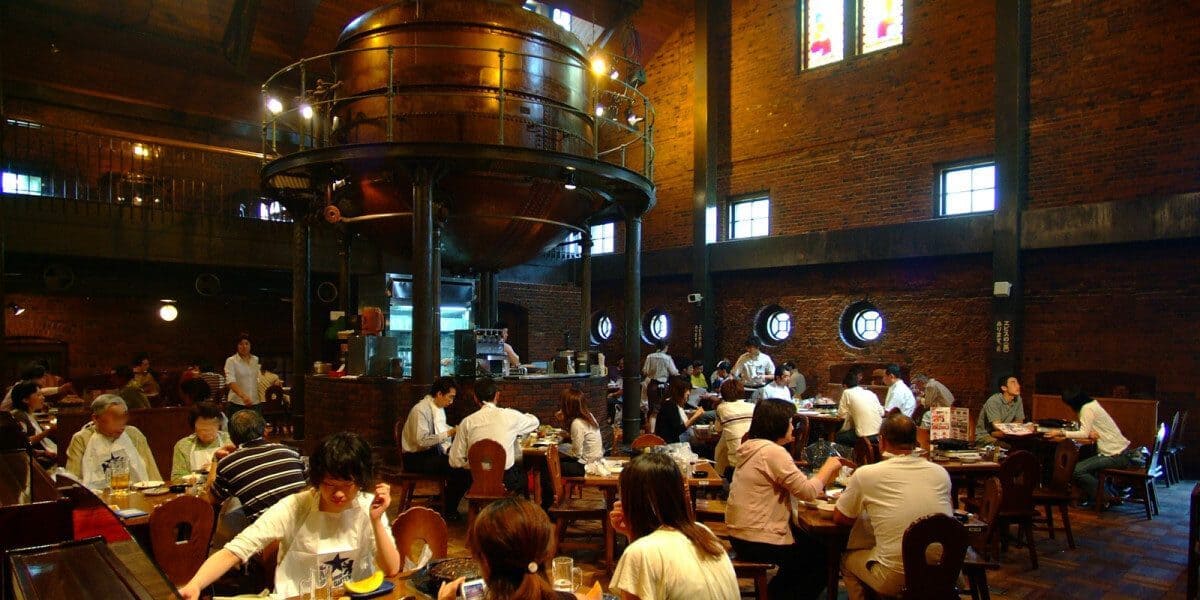
“If you make wheat and hops, it becomes beer.” This statement will welcome you as you enter the place. Sapporo Beer Garden takes pride on the kind of beer they serve. The place is running for about fifty-five years (55 years) now. Locals love to visit here and enjoy the vibe of the shop. Over the years, the beer garden has evolved into a place wherein locals can go and have a good time. Their Jingisukan is also a popular pair with their in-house draft beer.
Darumaya Nishi Shinjuku Store
Granted that Jingisukan is a local food in Hokkaido, a store in Tokyo is also famous for it. The name of the restaurant is Darumaya Nishi. The store sits strategically in Shinjuku — one of Tokyo’s busiest cities. Shinjuku is a go-to location in the area because of its wide range of shopping centers and cafes. In addition that, several movies have been shooting in the area.
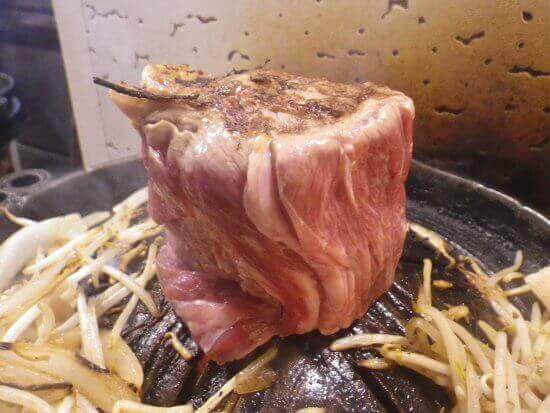
Since the restaurant itself is quite small in space, it’s better if you book a reservation in advance. Also, this place can be stuffy so you have to prepare yourself ahead of time.
Conclusion
Jingisukan (ジンギスカン) is one of the many reasons why you should visit Hokkaido. The smoky flavor of this local food is perfect to satisfy one’s craving for a grilled dish. Make sure to try this the next time you visit the area!
If you’re still reading this, it means that you love Jingisukan! Let your friends know about this Japanese local food by sharing it on your social media accounts.
FAQ
What is Hokkaido Jingisukan?
Hokkaido Jingisukan is a regional dish featuring grilled lamb or mutton cooked on a dome-shaped grill. It is one of Hokkaido’s most iconic local foods.
Why is it called “Jingisukan”?
The name is inspired by Genghis Khan, as lamb and mutton are commonly eaten in Mongolia. The dome-shaped grill is said to resemble a Mongolian soldier’s helmet.
What kind of meat is used?
Both fresh lamb and mutton are used. Hokkaido locals often prefer fresh, high-quality lamb for its tender texture and mild flavor.
How is Jingisukan typically cooked?
The meat is grilled on a raised dome while vegetables like bean sprouts, onions, and bell peppers cook around the edges where the juices flow down.
Is the meat marinated?
There are two styles: marinated Jingisukan (with soy sauce–based seasoning) and non-marinated (grilled plain with dipping sauce). Both styles are popular in Hokkaido.
Where can I try Jingisukan in Hokkaido?
You can enjoy it at specialty restaurants, beer halls, and local barbecue spots across Sapporo, Asahikawa, and many other cities in Hokkaido.
Does Jingisukan have a strong gamey flavor?
Fresh lamb used in Hokkaido has a mild flavor with very little gaminess, making it enjoyable even for people new to lamb dishes.
What sauces go well with Jingisukan?
Typical sauces include soy sauce–based dips with garlic, ginger, fruit puree, or sesame. Some restaurants offer their own secret blends.
Is Jingisukan popular among locals?
Yes, it is beloved by Hokkaido residents and often enjoyed at family gatherings, outdoor barbecues, and festivals.
Can Jingisukan be enjoyed by tourists?
Absolutely. Many restaurants provide instructions, making it easy for first-time visitors to enjoy the experience of grilling their own lamb.
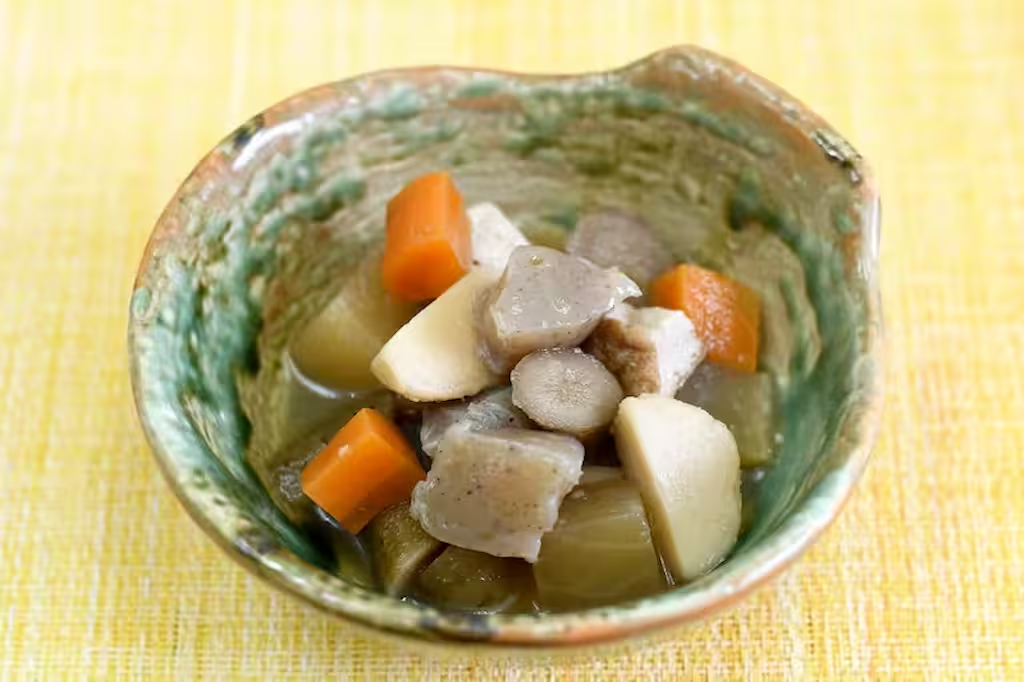
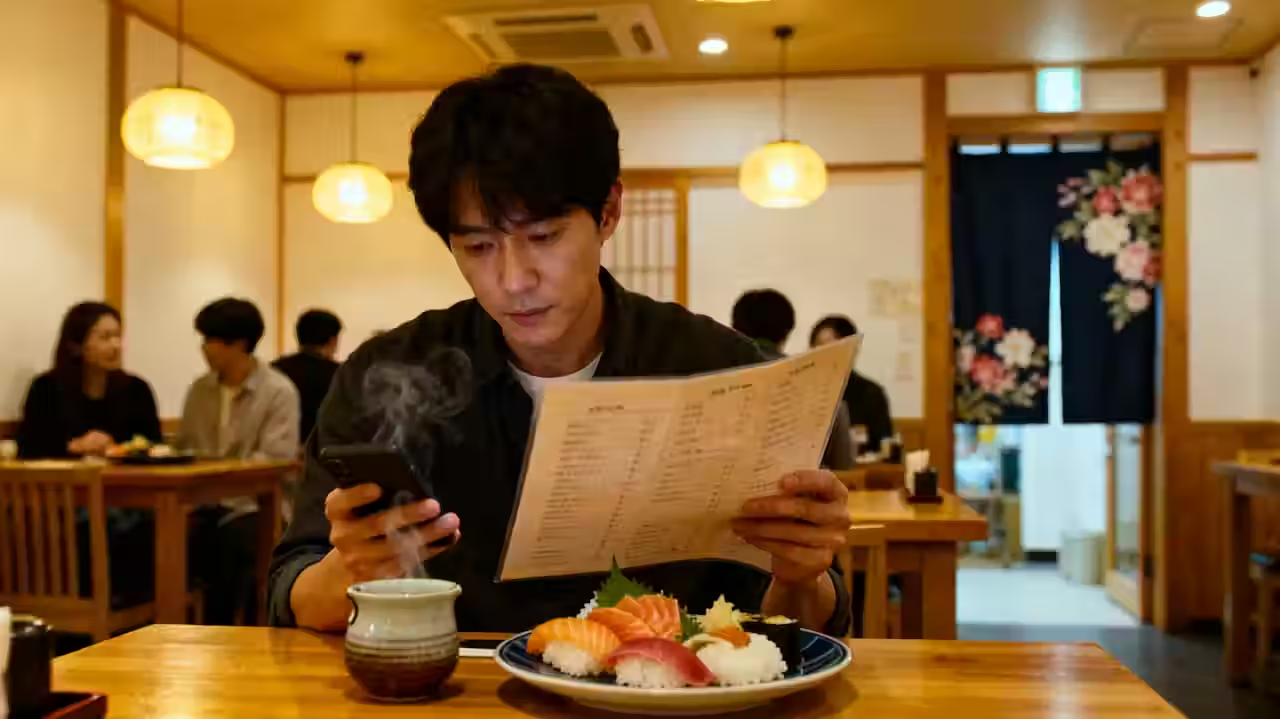
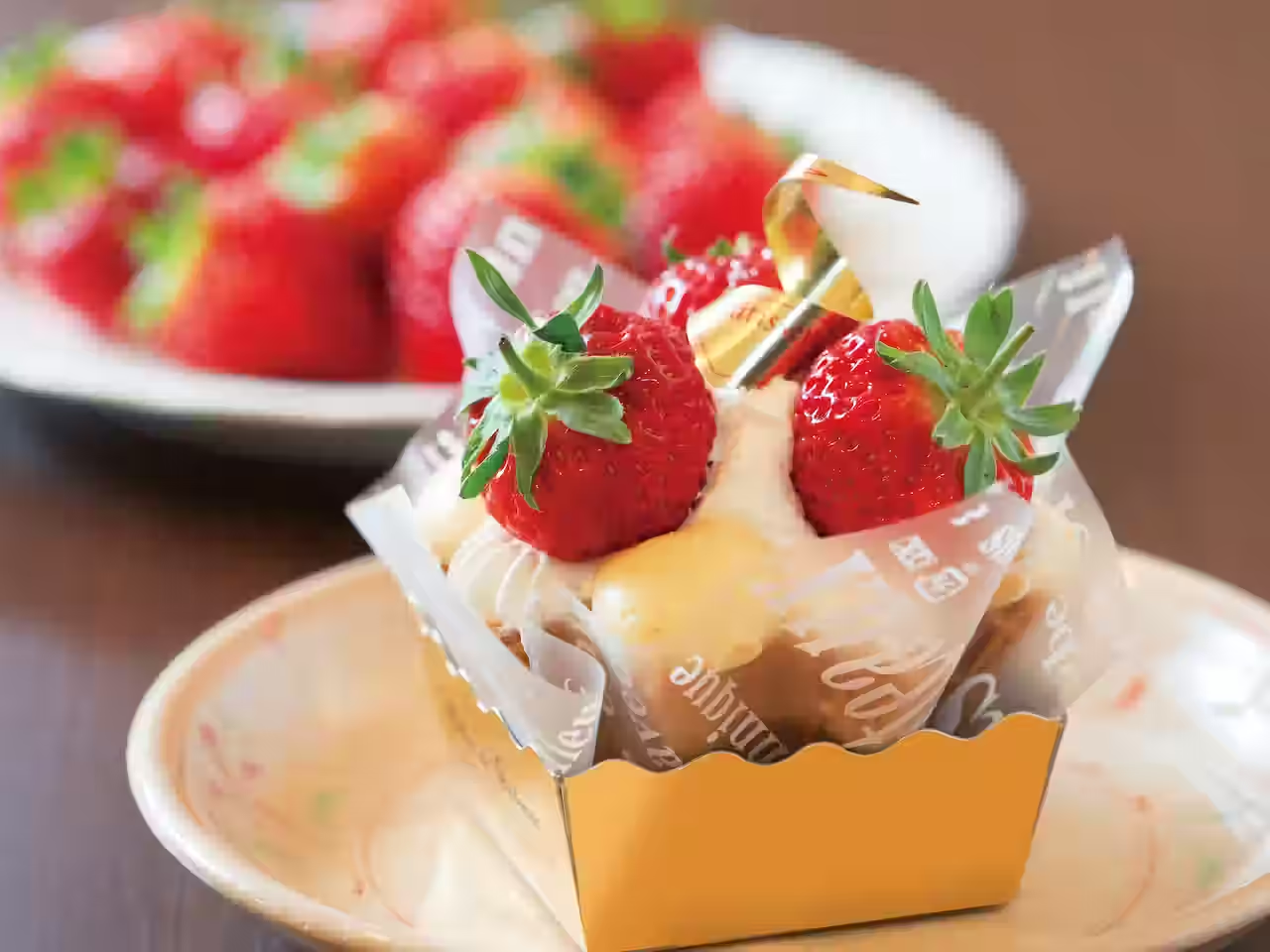
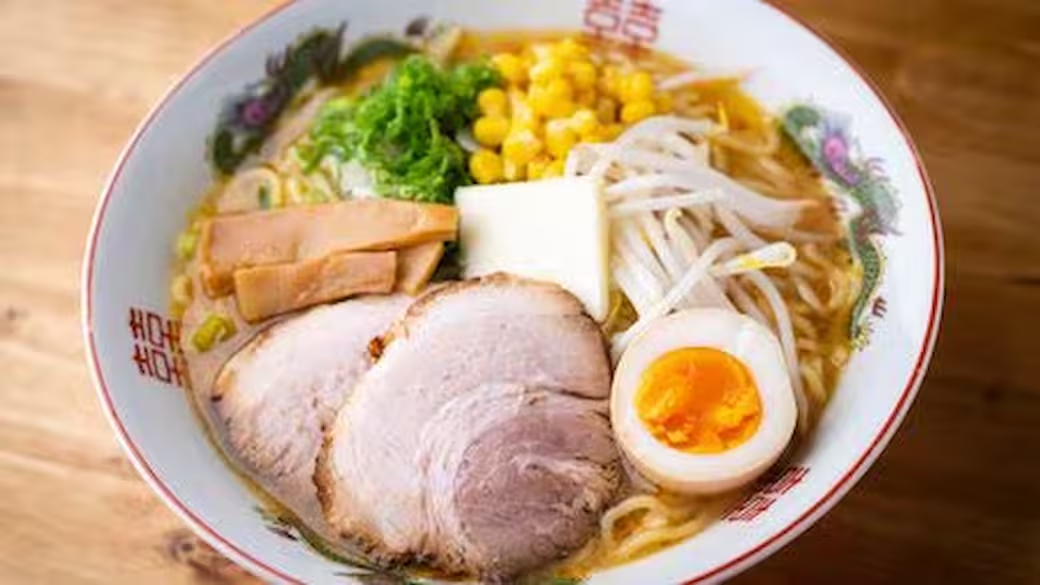
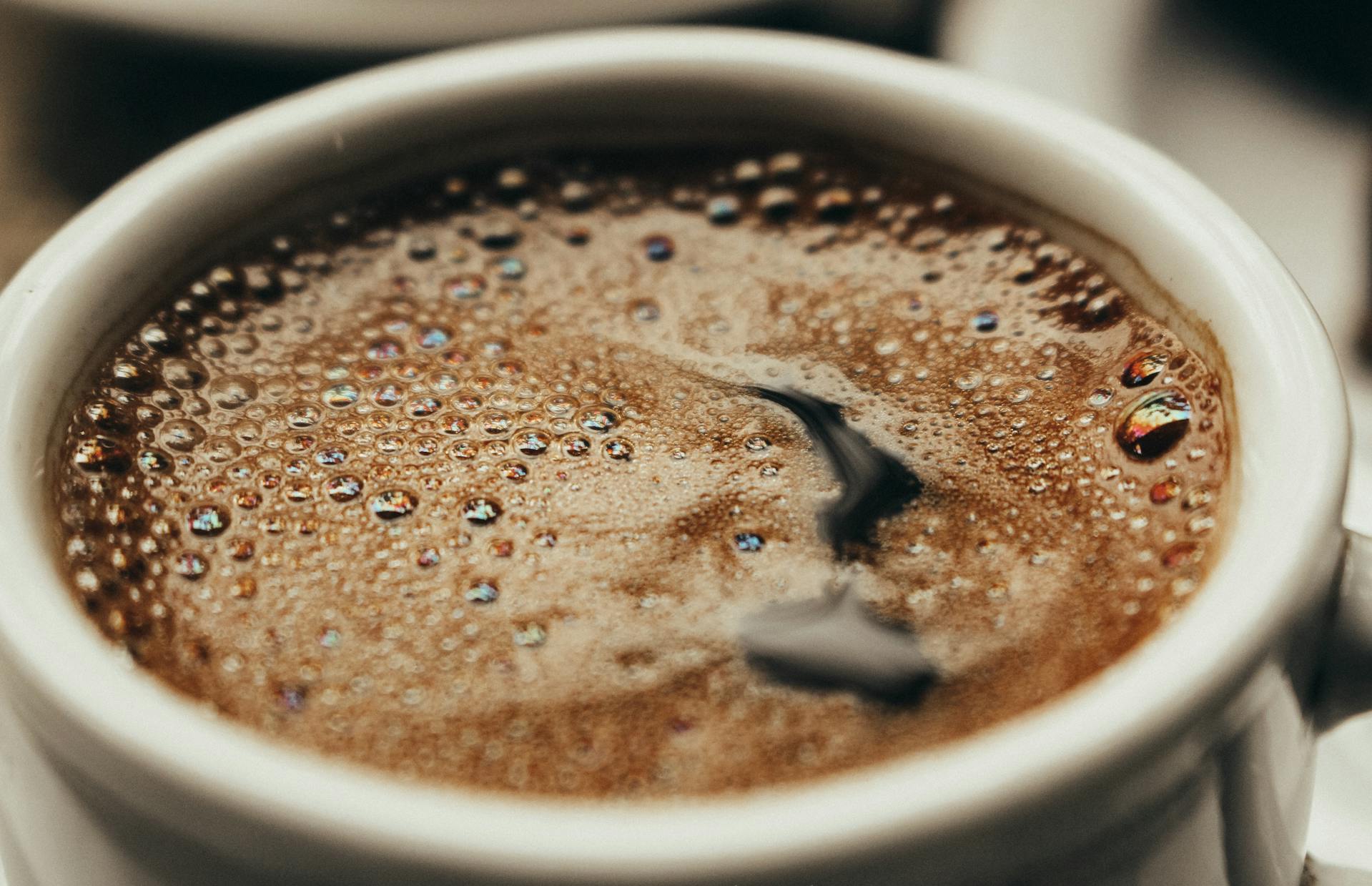

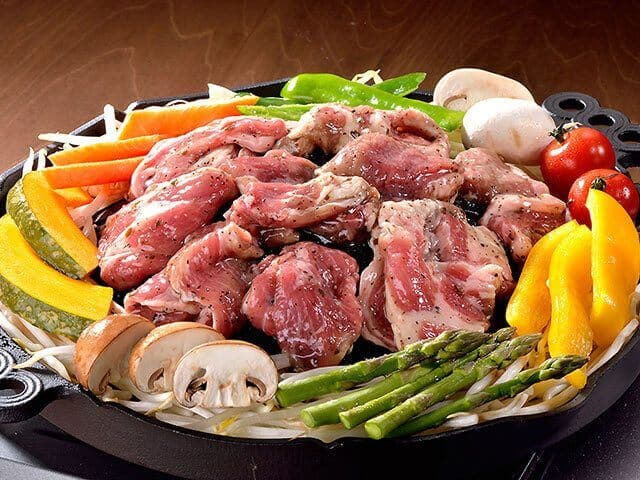
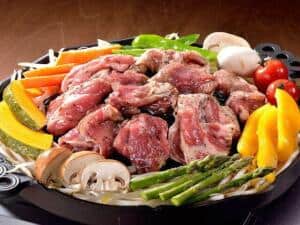
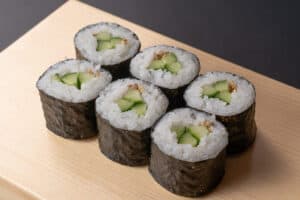

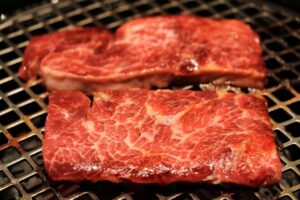
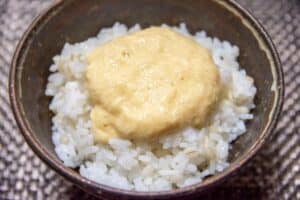
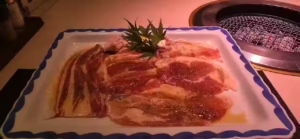
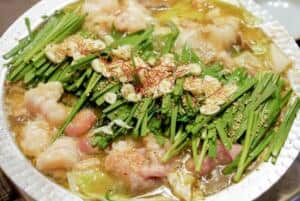
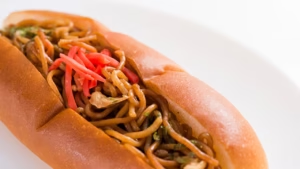
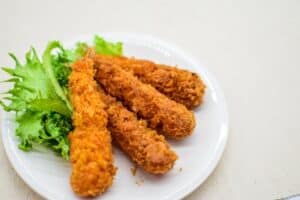
Comments